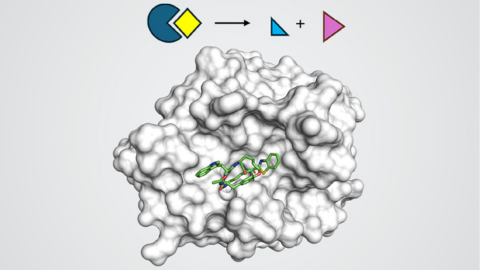Can grad students have (other) jobs?
Between classes, studying and research, working toward a Ph.D. or master’s degree is basically full-time work. Can you have another job while you're in graduate school? Is is allowed? Is it manageable? Those are the questions I’m diving into in this week’s career column.
Is grad school a job?
When I was in graduate school, the university considered me a student employee because I received a stipend to do my research. The stipend was intended to ensure that my graduate work was my main focus, and I also received tuition remission for the classes I was taking toward my degree.
This isn’t the case for every program. Some graduate students are required to do other work associated with earning their stipend, such as teaching classes. Most students pursuing a master’s degree don’t get a stipend or tuition remission and are not typically considered student employees. The structure varies, so make sure you understand how you earn your stipend (if you get one) before thinking about finding other work.Can you seek outside work?
In general, graduate school that involves research is a full-time gig, and you don’t have a lot of time for other work. Students are expected to spend most of their time on coursework, research and, possibly, teaching. However, graduate student stipends are often a little lacking, especially considering the rising cost of living. I was certainly tempted to find outside work when I was in school to help pay my expenses. But is it allowed?
Before you think about finding a part time gig, check your school or program policies. In my Ph.D. program, the graduate student contract stated we could not seek outside employment and emphasized our schoolwork should be our full time and only means of employment. Although many grad students still found part time work or side hustles to supplement their stipends, it was generally discouraged. Other programs don’t have restrictions on outside employment or leave the decision to individual mentors.
If you aren’t sure what your program allows, start by looking in your student handbook, if you have one. If you can’t find the info you need, check with your program coordinator or mentor.
Finding work that works
If outside employment is not restricted, think carefully about what kind of job would work for you. Start by thinking about your graduate program — it should be your top priority — and your school or research activities. What are your time constraints? What is your class schedule? Finding a job that doesn’t interfere with your grad school obligations will help ensure you can manage both at once.
You could also consider internships or externships, assuming your mentor is okay with something more time consuming. I had a friend in grad school who was really interested in pharmaceutical research and was able to do a three-month summer externship with a pharmaceutical company in the area.
Depending on the kind of work you find, you might want to have a conversation with your PI so they’re aware of any new time constraints you have. Maybe you have to say no to weekend research. Explaining that to your PI early can help prevent misunderstandings.
To summarize: Outside work may be allowed, and you might be able to manage it. Be sure to check your program policies and carefully consider what work won’t interfere with your grad school progress.

Enjoy reading ASBMB Today?
Become a member to receive the print edition four times a year and the digital edition monthly.
Learn moreFeatured jobs
from the ASBMB career center
Get the latest from ASBMB Today
Enter your email address, and we’ll send you a weekly email with recent articles, interviews and more.
Latest in Careers
Careers highlights or most popular articles

Host vs. pathogen and the molecular arms race
Learn about the ASBMB 2025 symposium on host–pathogen interactions, to be held Sunday, April 13 at 1:50 p.m.

Richard Silverman to speak at ASBMB 2025
Richard Silverman and Melissa Moore are the featured speakers at the ASBMB annual meeting to be held April 12-15 in Chicago.

Women’s History Month: Educating and inspiring generations
Through early classroom experiences, undergraduate education and advanced research training, women leaders are shaping a more inclusive and supportive scientific community.

Upcoming opportunities
Register for the May 14 ASBMB Breakthroughs webinar on biosynthesis and regulation of plant phenolic compounds.

Upcoming opportunities
Save the date for ASBMB's virtual meeting on nucleophilic proteases. Reminder: Get your ticket for #ASBMB25's closing reception at the Griffin Museum of Science and Industry before it sells out!

Emerging Investigator Seminar: Networking, career insights & cutting-edge research
At ASBMB 2025, this all-day seminar will offer a chance to hear from budding scientists, build connections and learn about scientific career opportunities.

